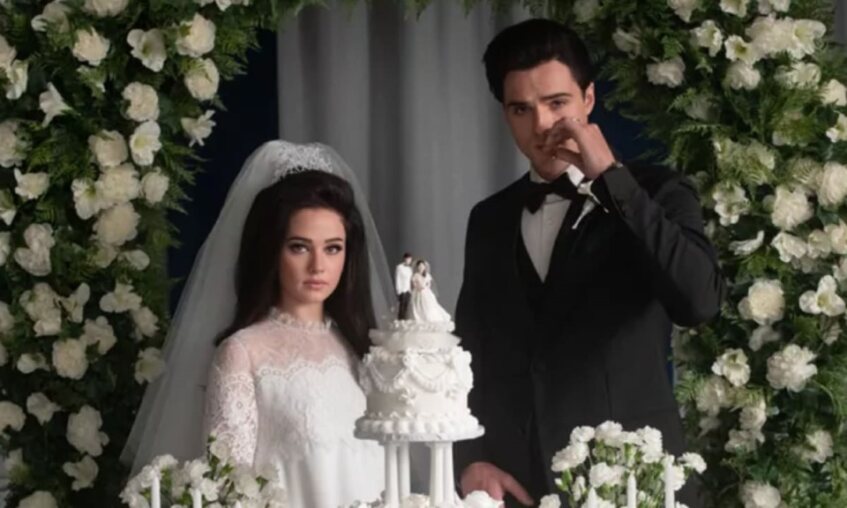Sofia Coppola’s much-anticipated eighth film “Priscilla” captures the humanity of its larger than personalities. Serving as the spiritual sequel of “Marie-Antoinette,” the film follows the titular 14-year-old as she begins a relationship with Elvis Presley. Based on Presley’s book “Elvis and Me,” Coppola does shy away from the uncomfortable. She does not condone or romanticize the relationship but rather explores what the couple must have been like away from the spotlight. The late Lisa Marie Presley, who passed away earlier this year, criticized the film’s script on the depiction of her father. Coppola was also not granted the rights of Elvis’ music and instead had original music and other songs from the era.
Signature Coppola staples are ever present such as a girl isolated at home, impeccable set design and longing distance stares. She once again tells the journey of a girl coming of age with the complications and important milestones of growing up. Keen movie goers will revel in the finer details such as leftover plates with unfinished food and the way Priscilla decorates her bedroom. However, “Priscilla” does fall into the traps of the biopic genre. The second half of the movie suffers from pacing issues, noticeably collapsing events to get to the end, while the first half takes more time to develop characters and plotlines.
Jacob Elordi, who only knew of Elvis from watching “Lilo and Stitch,” gives a nuanced performance. Compared to the almost cartoonish way that Austin Bulter portrayed the singer-actor in last year’s “Elvis,” Elordi takes a gentler approach by grounding the character. Although he is not the film’s protagonist, the audience gets well acquainted through his interactions with Priscilla. Elordi’s Elvis is charming as he is menacing when he towers over his co-star. Fans of Elvis may be left decisive as this version of him is more of an examination of the icon than a glorification.
The standout performance was Caliee Spaeny as Priscilla. Earning the Volpi Cup for Best Actress at the 80th Venice International Flim Festival, Spaeny graces the silver screen. She is able to translate so much emotion through her gestures and posture. Particularly, Spaeny captures the meekness and innocence of younger Priscilla. The audience cannot help empathizing with her teenage infatuation with Elvis, comprehending the enormous power imbalances in the relationship. The audience could not help groaning during the beginning of the movie, almost wanting to yell at Priscilla, telling her not to fall for his tactics. Fashion and makeup play an integral part in “Priscilla” informing the audience of her emotional state. Spaney studs in Prisicilla’s most memorable outfits that do not disappoint. As she transforms into the Priscilla that we are familiar with, viewers are left with disturbing implications that are never explicitly stated but are alluded to.
Despite the high expectations placed on Coppola, “Priscilla” succeeds in telling an honest and compelling film. While many may point to the film’s imperfections, there was no better director to adapt Priscilla’s book than Coppola, who was careful in crafting a sincere story.



